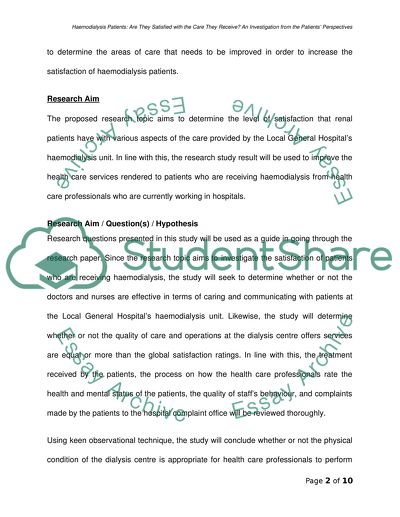Cite this document
(Haemodialysis Patients: Are They Satisfied with the Care They Receive Research Proposal, n.d.)
Haemodialysis Patients: Are They Satisfied with the Care They Receive Research Proposal. Retrieved from https://studentshare.org/health-sciences-medicine/1559852-patient-satisfaction-survey
Haemodialysis Patients: Are They Satisfied with the Care They Receive Research Proposal. Retrieved from https://studentshare.org/health-sciences-medicine/1559852-patient-satisfaction-survey
(Haemodialysis Patients: Are They Satisfied With the Care They Receive Research Proposal)
Haemodialysis Patients: Are They Satisfied With the Care They Receive Research Proposal. https://studentshare.org/health-sciences-medicine/1559852-patient-satisfaction-survey.
Haemodialysis Patients: Are They Satisfied With the Care They Receive Research Proposal. https://studentshare.org/health-sciences-medicine/1559852-patient-satisfaction-survey.
“Haemodialysis Patients: Are They Satisfied With the Care They Receive Research Proposal”. https://studentshare.org/health-sciences-medicine/1559852-patient-satisfaction-survey.


